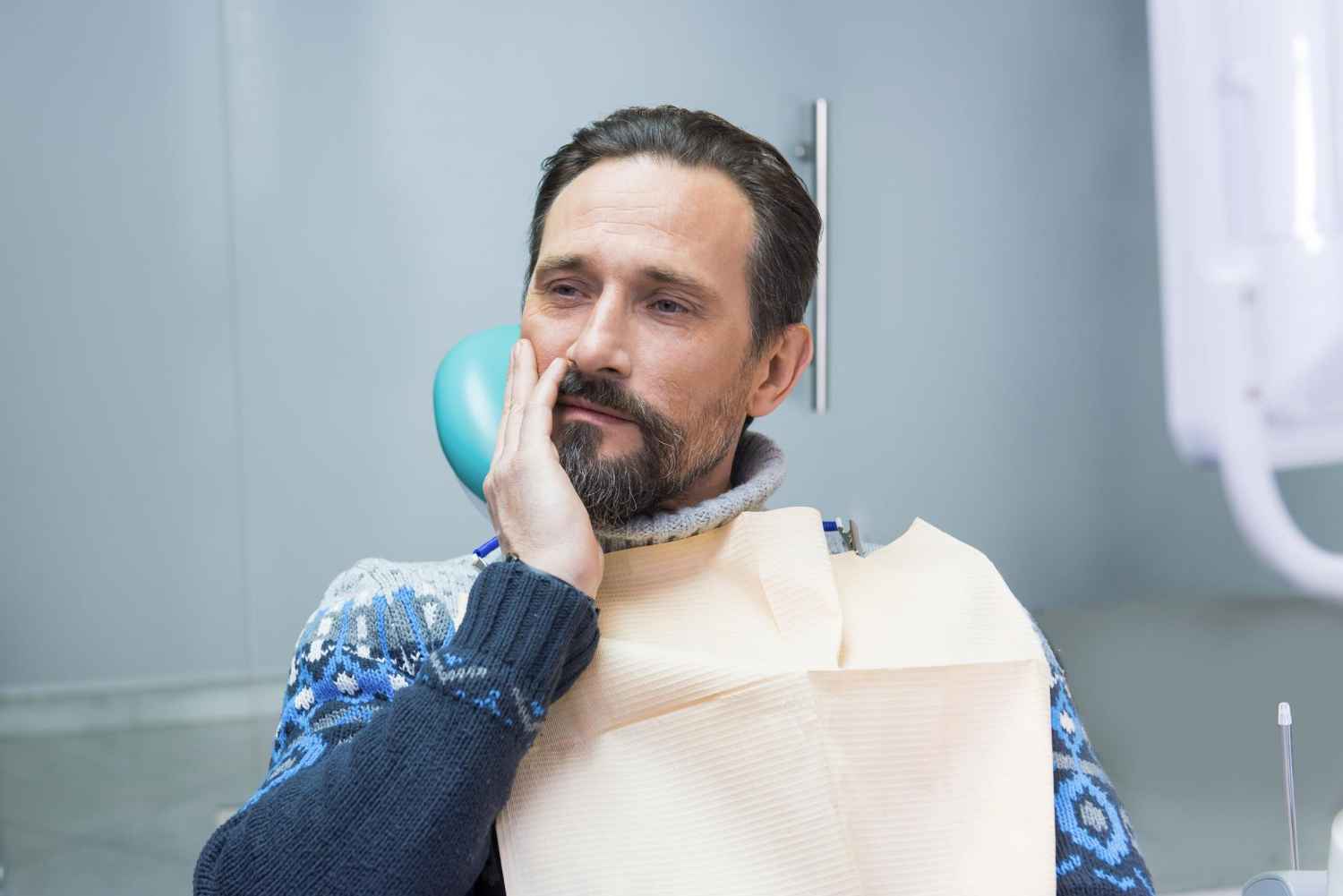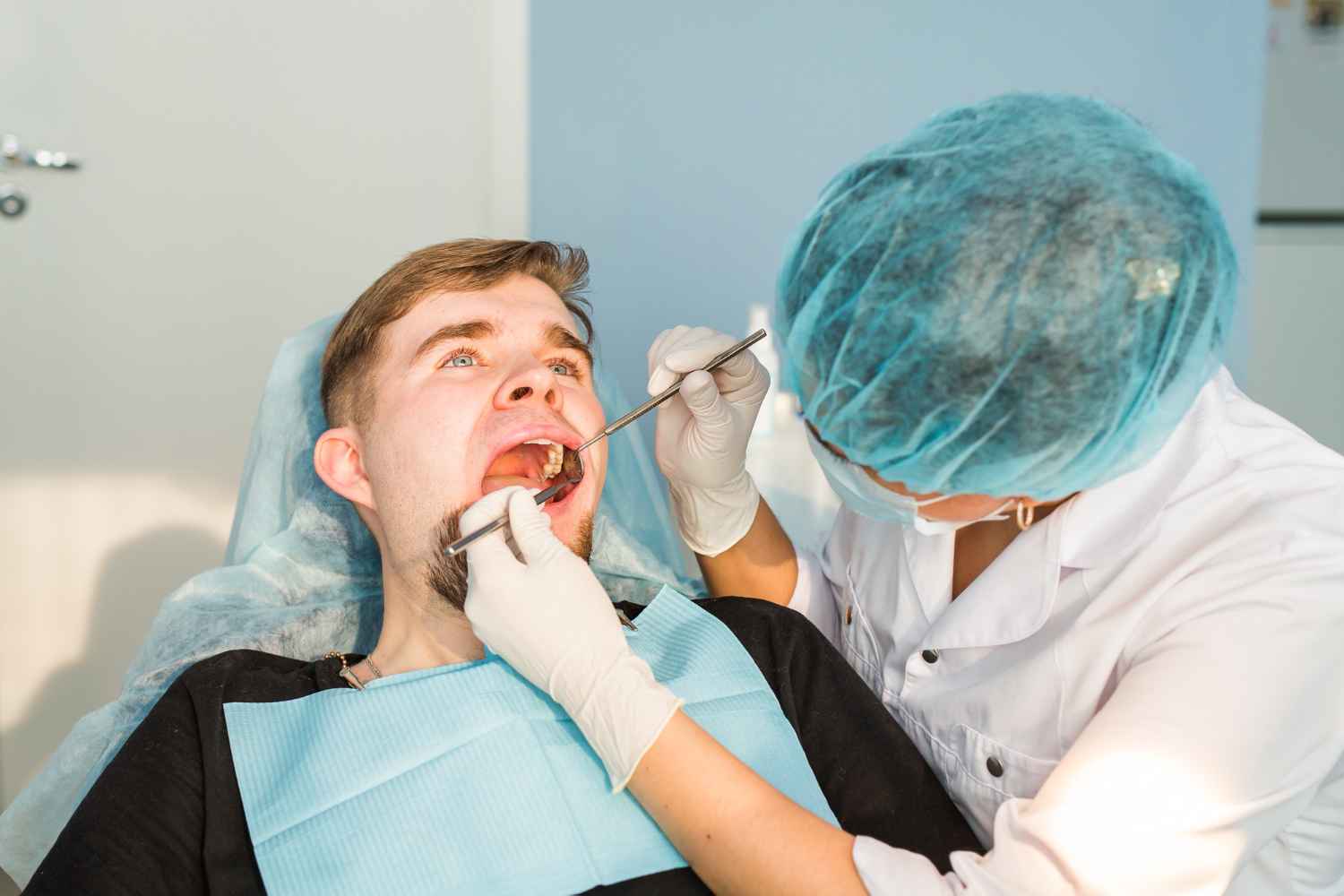Impacted wisdom teeth are among people’s most prevalent dental problems, especially in their middle and late twenties. Here’s everything you need to know about impacted teeth – including what they are, why they happen, how they’re treated, and how to stage a successful comeback after the procedure.
How Do You Know About Wisdom Tooth Impaction?
Third molars or wisdom teeth are the last to come through, sometime between 17 to 26. Sometimes, however, they need larger grounds for their freedom and development. This lack of room can cause them to become impacted or wedged under the gum or the jawbone. Impaction may be classified as partial (the tooth comes through the gum but has not emerged fully) or total impaction (the tooth lies wholly buried).
Symptoms of Impacted Wisdom Teeth
Impacted wisdom teeth often bring noticeable symptoms that affect daily comfort and health, such as:
- Pain and Swelling: Their gradual pressure against neighbouring teeth may cause pain, especially at the back of the mouth.
- Tender Gums: For people with impacted teeth, the gum tissue adjacent to these teeth becomes red, swollen, and sensitive to infection.
- Cavities and Bad Breath: The affected teeth can form pockets that harbour germs, which can cause cavities and bad breath.
- Ear Discomfort: Since the nerves in the mouth and ear are linked, an earache may occur if you have impacted wisdom teeth.

Causes of Wisdom Tooth Impaction
Wisdom teeth become impacted when they don’t have enough space to grow normally or if they emerge at the wrong angle.
- Crowded Mouth: Wisdom teeth often lack enough room in the mouth to grow and become impacted, which prevents them from coming out fully.
- Partially Erupted Teeth: Occasionally, the third molar only grows halfway or is locked within the gum line, and only part of the crown is visible (partially impacted).
- Fully Impacted Teeth: If the wisdom tooth never develops and remains completely embedded in the jawbone, it is said to be thoroughly impacted.
- Angled Toward the Second Molar: The wisdom tooth may be oriented in different directions and may, therefore, affect the second molar, causing pain or harm.
- Angled Toward the Back of the Mouth: There will be scenarios in which the tooth will begin to grow at an angle in the direction of the back part of the mouth, due to which it may not develop correctly.
- Horizontal Growth: In other cases, they are misaligned and positioned horizontally in the jawbone, which results in complex oral complications.
- Trapped Beneath the Bone: Sometimes, wisdom teeth might not fully emerge from the gums. Instead, they can be completely enclosed by the jawbone due to insufficient space.
Why Should Impacted Wisdom Teeth Be Treated?
- Infections: General infection of the tissues and gums surrounding the implant may occur, which manifests into pain and swelling or may escalate to more complicated conditions.
- Cysts: A cyst may also develop around an impacted tooth within the bone, leading to even more harm to the facial skeleton and, again, other teeth.
- Gum Disease: Since impacted wisdom teeth are hard to clean, the risk of developing gum disease rises, opening the door for other oral problems.
- Tooth Decay: You can develop cavities in the neighbouring teeth as the affected teeth are hard to clean and access, especially with braces.
For these reasons, dentists often recommend the extraction of impacted wisdom teeth, especially if symptoms are present or expected to develop.

Procedure for Wisdom Tooth Extraction
Surgical Extraction
- Preparation: The dentist will use X-rays to diagnose the tooth’s position relative to others and then numb the area. Sometimes, you can also be advised to undergo sedation.
- Procedure: The oral surgeon is costly in modifying the gum to access the impacted tooth. In this case, they may extract the tooth part by part to minimize the effect on other tissue.
- Closure and Gauze Packing: After the extraction, the socket is cleaned and may be sutured. A gauze dressing is placed to control bleeding and promote clotting.
Pain Management and Antibiotics
- Medication: Pain relief typically includes over-the-counter analgesics or prescribed medications. Preventive antibiotics may be given to reduce the risk of infection.
- Icing and Compresses: Cold compresses applied to the outside of the face can reduce swelling and alleviate discomfort.
Recovery and Aftercare
While wisdom tooth extraction is a common procedure, recovery requires specific care:
Managing Bleeding
This is expected to occur in the first instances but shouldn’t last more than a few hours, as a simple pressure with gauze should be able to control it.
Dealing with Numbness
Where there are compromised nerve endings, the lower lip, tongue or chin may develop temporary tingling or numbness, which may take up to 18 months to heal in extreme cases.
Swelling and Pain Relief
Blood pressure should also be controlled by applying a cold compress to the affected area to lessen the swelling, and pain should be relieved with a pain reliever that your dentist recommends.

When to Consult Your Dentist
If you experience signs of tooth impaction—such as jaw pain, swelling, or gum tenderness—it’s essential to consult your dentist promptly. Early evaluation can help prevent further complications, support effective treatment, and promote smoother recovery.
Book Your Appointment
For any appointment or to meet our professional dentists, contact us at +92 300 0321321. You may also contact our customer service representatives online on our website or by phone to arrange an appointment with one of Lahore’s most qualified dental professionals for timely emergency care or dental surgery and other related procedures, which includes a list of our experts.
Conclusion
Impacted wisdom teeth are a common experience, with the problem felt in people in their late teens or twenties. If not well addressed, the affected teeth can cause symptoms such as extreme sensitization, gum inflammation, or even tooth decay.
It requires surgical removal of these cysts, management of any related pain, and follow-up care after surgery. Consult a dentist as soon as possible to prevent conditions from worsening and have a better prognosis during the recovery period.
People should also ensure that they get regular dental check-ups to remove or extract wisdom teeth or monitor their development during their early stages.
